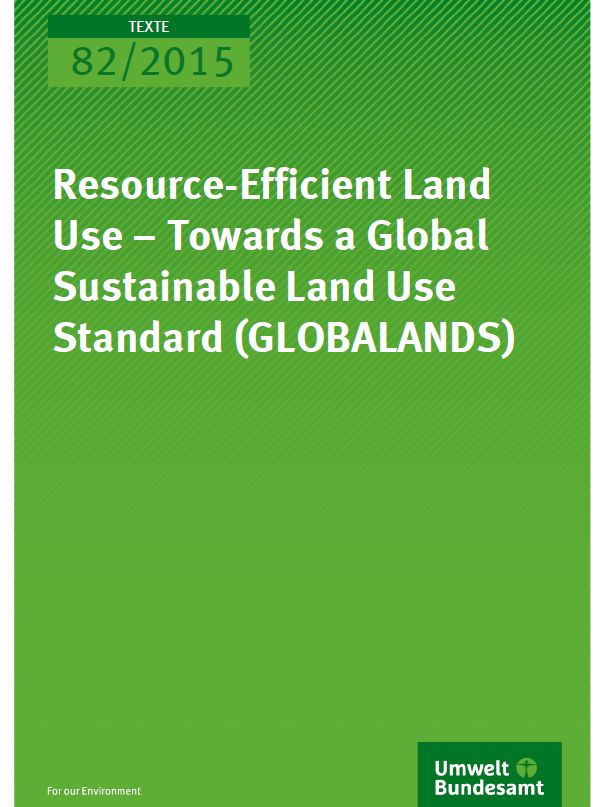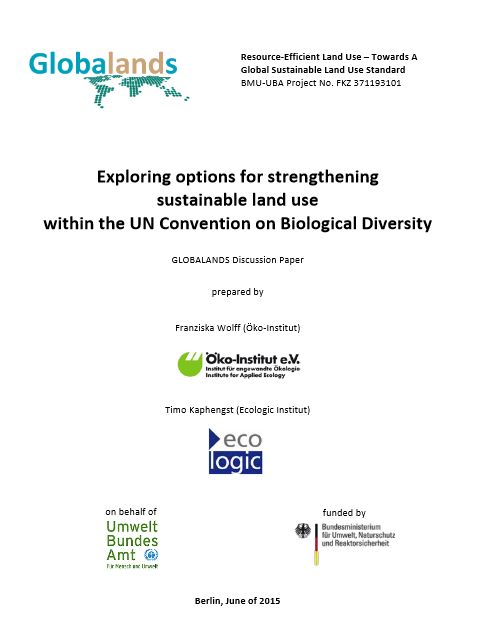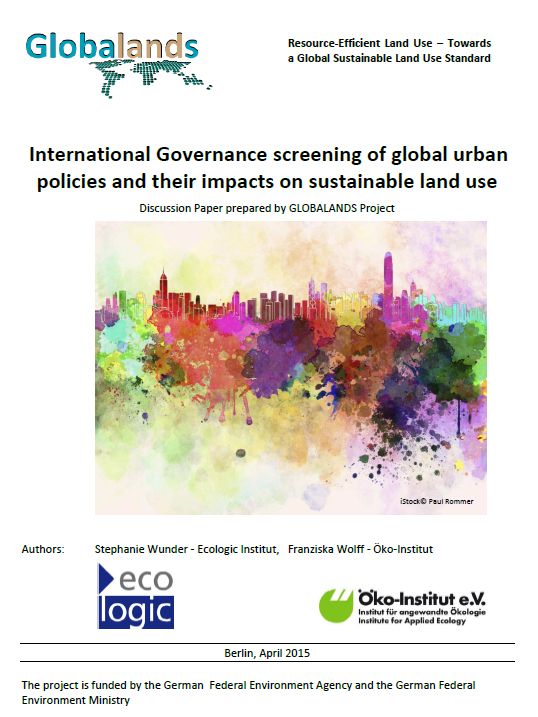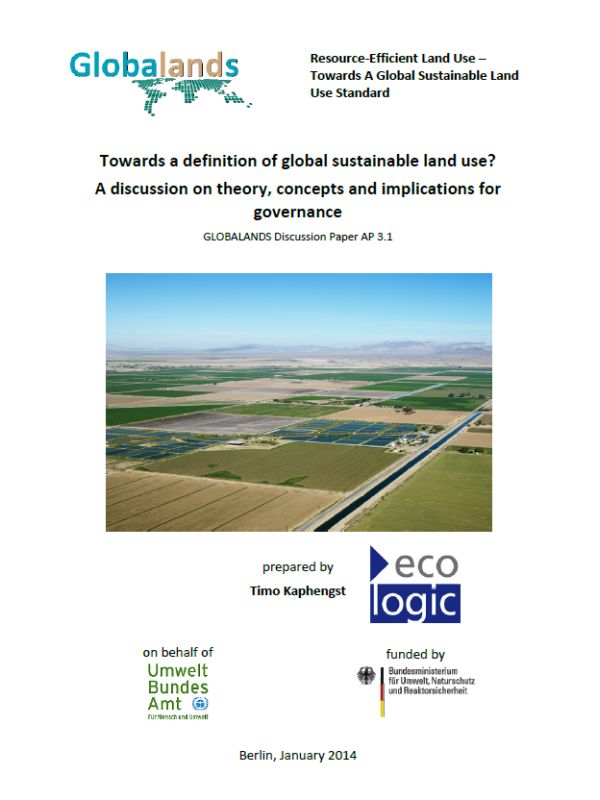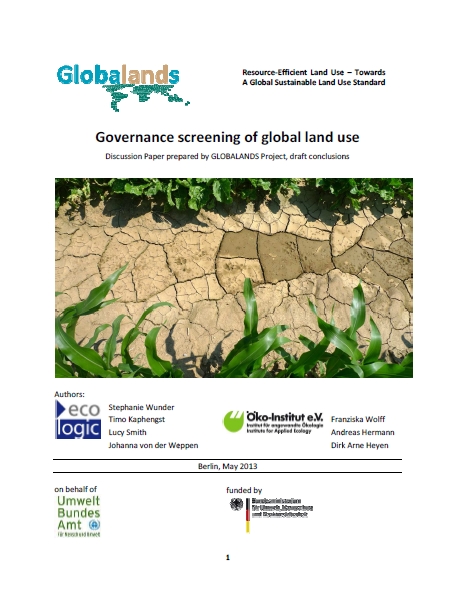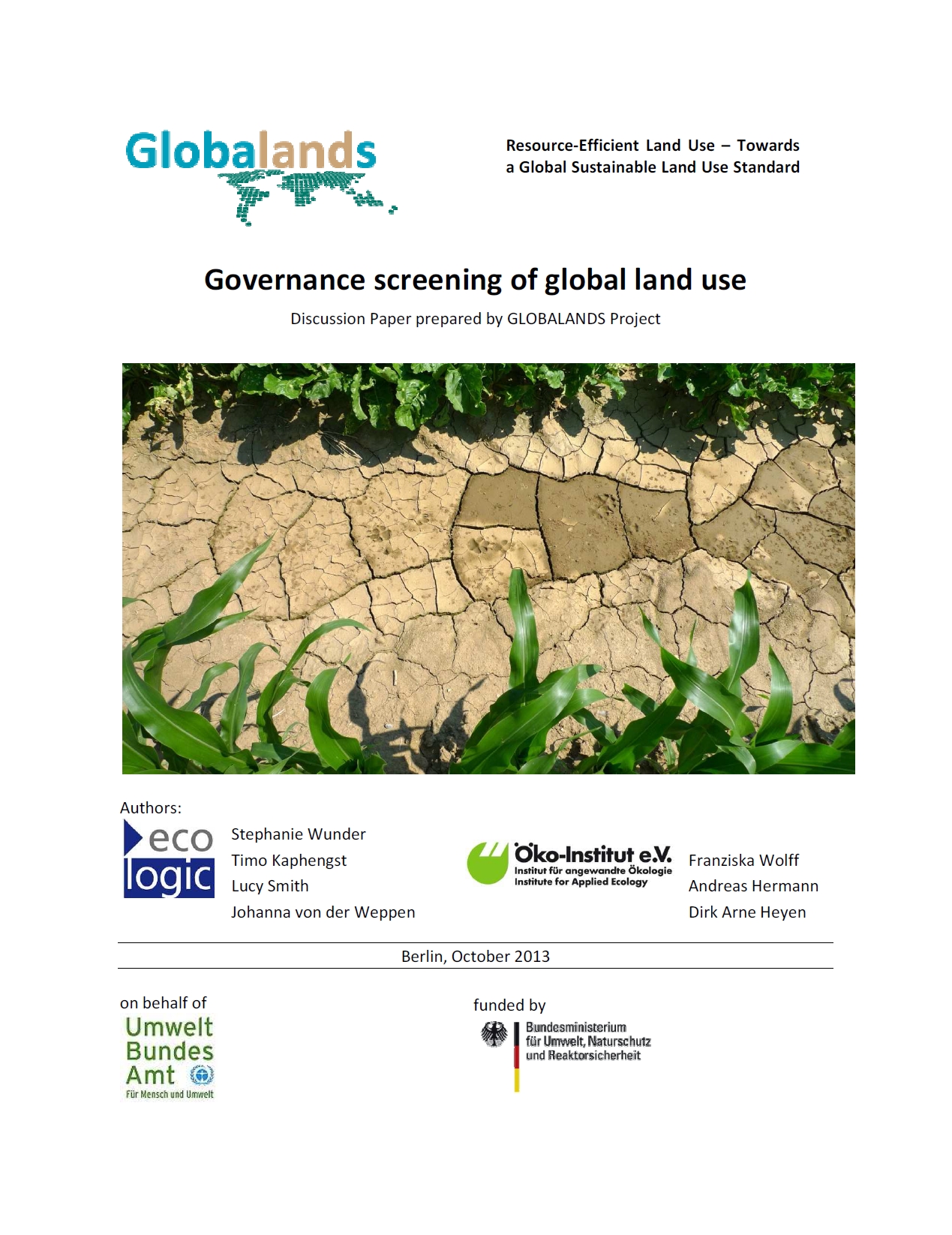The pressure on land and natural resources is increasing worldwide. While there are many sectoral policies tackling different environmental problems, land use is not regulated in an integrated and overarching way. The discussion on sustainable biofuels and biomass highlights the continued lack of an effective and innovative framework to deal with complex land-use issues. The aim of the GLOBALANDS project is to identify existing land use policies and develop possible governance tools towards a more resource efficient and sustainable global land use.
In a first step, the project team assesses past and current land use patterns by sector in order to identify the driving forces and trends behind (major historical) changes in global land use. In parallel, a governance screening is undertaken to gain an overview of land use planning approaches on international and EU levels as well as in selected countries. Both governmental and non-governmental approaches are screened and best practice examples are identified.
Based on this analysis and through a close interaction with relevant international institutions, the project team will develop conceptual and strategic suggestions for potential approaches towards a global sustainable land use standard, as well as, regulation tools, and other instruments.
Within the GLOBALANDS project Ecologic Institute leads the work on governance screening and the formulation of policy recommendations.
Project results:
- Synthesis Report "Resource-efficient Land Use - Towards a global sustainable land use standard (GLOBALANDS)"
Prepared by Uwe R. Fritsche, Ulrike Eppler, Leire Iriarte, Sabine Laaks (IINAS), Stephanie Wunder, Timo Kaphengst (Ecologic Institute), Franziska Wolff, Dirk Heyen (Öko-Institut), Alexa Lutzenberger (Leuphana University) October 2015. - Discussion Paper "Exploring options for strengthening sustainable land use within the UN Convention on Biological Diversity"
Prepared by Franziska Wolff (Öko-Institut) and Timo Kaphengst (Ecologic Institute), June 2015. - Issue Paper "The private sector, CSR and sustainable land use: recent trends"
Prepared by Franziska Wolff and Dennis Klink (Öko-Institut), June 2015. - Issue Paper "Urban-Rural Linkages and Global Sustainable Land Use"
Prepared by Ulrike Eppler, Uwe R. Fritsche, Sabine Laaks (IINAS), May 2015. - Discussion Paper "International governance screening of global urban policies and their impacts on sustainable land use"
Prepared by Stephanie Wunder (Ecologic Institute) and Franziska Wolff (Öko-Institut), April 2015. - Issue Paper "Urban Food Systems and Global Sustainable Land Use"
Prepared by Uwe R. Fritsche, Sabine Laaks, Ulrike Eppler (IINAS), April 2015. - Discussion Paper "The Transatlantic Trade and Investment Partnership (TTIP) and its relevance for global sustainable land use"
Prepared by Christiane Gerstetter (Ecologic Institute), March 2015. - Discussion Paper "The World Bank Safeguards Policies - Chance or risk for global sustainable land use?"
Prepared by Timo Kaphengst (Ecologic Insitute), February 2015. - Working Paper "Global Sustainable Land Use: Concept and Examples for Systemic Indicators"
Prepared by Uwe R. Fritsche, Ulrike Eppler, Leire Iriarte (IINAS), Darmstadt, Berlin, Madrid, January 2015 - Background Paper "Deutschlands Rolle in der internationalen Landnutzungspolitik - Ableitung von nationalen Empfehlungen zur Stärkung nachhaltiger Landnutzung"
Prepared by Stehanie Wunder, Timo Kaphengst (Ecologic Institute), Uwe R. Fritsche, Ulrike Eppler (IINAS) and Franziska Wolff (Öko-Institut), November 2014. - Working Paper "Global Land Use Analysis", German Version: "Analyse der globalen Landnutzung"
Prepared by Alexa Lutzenberger, Mario Brillinger and Steffen Pott (Leuphana University Lüneburg), May 2014. - Discussion Paper "Towards a definition of global sustainable land use? A discussion on theory, concepts and implications for governance"
Prepared by Timo Kaphengst, January 2014. - Discussion Paper “Governance screening of global land use”
Prepared by Stephanie Wunder, Timo Kaphengst, Lucy Smith, Johanna von der Weppen (Ecologic Institute) and Franziska Wolff, Dirk Arne Heyen, Andreas Herrmann (Öko-Institut), Berlin, October 2013. - Working Paper “Global Land Use Scenarios: Findings from a review of key studies and models”
Prepared by Uwe R. Fritsche, Ulrike Eppler, Darmstadt, April 2013. - Working paper “Land use trends, drivers and impacts. Key findings from a review of international level land use studies”
Prepared by Dr. Karlheinz Knickel, Frankfurt, May 2012.




